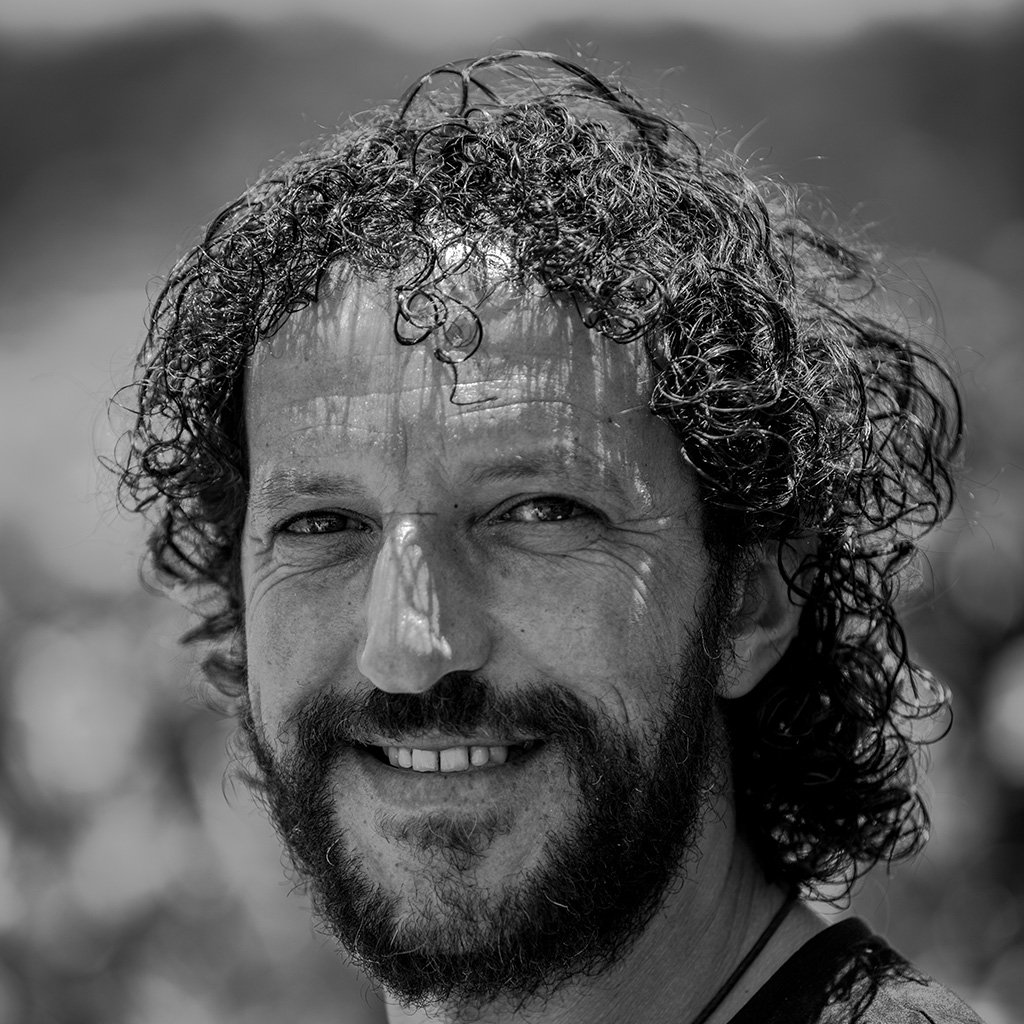Ali Abu Awwad is a world-recognized Palestinian activist and the founding leader of the Taghyeer (Change) Palestinian National Nonviolence Movement, promoting nonviolence and self-development to guarantee a nonviolent solution to the conflict.
He lives in Beit Jala, Palestine.
Ali Abu Awwad was raised in a politically-active refugee family. His mother, Fatma (pictured below), served as a PLO regional leader, working closely with Yaser Arafat. As a young child, Ali witnessed Israeli agents beat and humiliate his mother for her political activism. This, and his daily life under occupation, stirred the embers of resistance within him. During the First Intifada, Ali was arrested by Israel for his leadership in the resistance and for refusing to supply information against his mother, who had also been arrested.
With the Oslo Accords in 1993, Ali was released and began serving in the newly-created Palestinian Authority security forces. But he quickly became disillusioned with the political process—being forced to arrest his fellow Palestinians for their continued resistance to Israel despite the PA’s ability to guarantee the rights of citizenship due to Israel’s ongoing occupation.
In 2000, three years after his resignation from the PA security force, as the violent Second Intifada raged, Ali was shot by a settler while he was changing a tire on a West Bank road. Sent to Saudi Arabia for treatment, he received there the news that would change his life: an Israeli soldier had murdered his beloved brother, Youssef—shot at point-blank range at the entrance to his hometown, Beit Ummar, in the West Bank. It was after this loss that Ali’s mother began inviting bereaved Israeli families from the Parents Circle into their home. There had been enough bloodshed, she realized; she wanted to save her other children. These meetings changed the trajectory of Ali’s life.
From 2002-09, Abu Awwad toured the world as the Palestinian spokesperson for the Parents Circle Bereaved Families Forum. Together with Robi Damelin—an Israeli Jewish woman whose son was killed by a Palestinian sniper—they shared the mutual grief and understanding built between Palestinians and Israelis who have lost loved ones to the conflict. His life and work were featured during that time in two award-winning films, Encounter Point and Forbidden Childhood.
In 2013, Abu Awwad began developing the Palestinian Karama (Dignity) Nonviolence Center on family-owned land near the Gush Etzion junction in Area C of theWest Bank. At the start of 2014, he co-founded a local Palestinian-Israeli initiative called Roots, promoting understanding, nonviolence, and transformation. After this journey of trying to gather together the left and right wings of both his society and Israeli society, he concluded that nonviolence should be adopted by his own society as the carrier to their freedom without relying on Israeli partners.
By 2016, he had fully turned his activism to the priority of developing a mass independent movement on the ground of Palestinians organizing Palestinians—to take nonviolent responsibility for self-development and forging a path to end occupation. That movement, Taghyeer, is dedicated to fostering Palestinian national nonviolent identity in action, through which communities, leaders, and organizations come together to address social development needs and work to end the occupation. The movement was launched by more than 3,000 Palestinians across the West Bank gathering in Jericho in September 2016.
After three years trying to see each other in their separate prisons, Ali and his mother finally launched a brutal 17-day hunger strike, which—incredibly—resulted in achieving permission for a visit. This success was a turning point in Ali’s realization that nonviolent action along Gandhian principles could be a better way to achieve his rights—that he could win without harming another person.
Ali’s Story
“Painful Hope”
Watch Ali Abu Awwad’s moving TEDx talk in Jerusalem.


